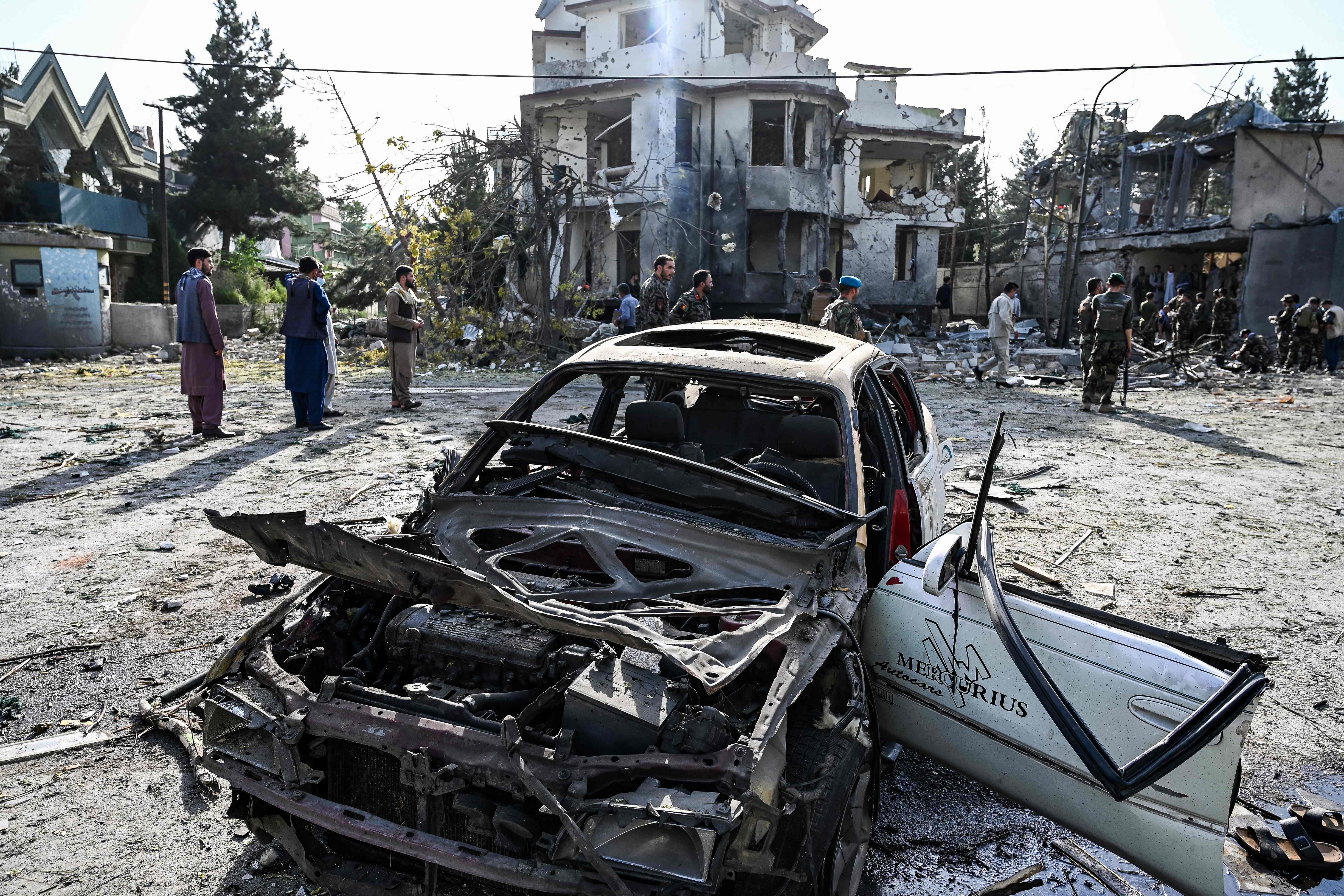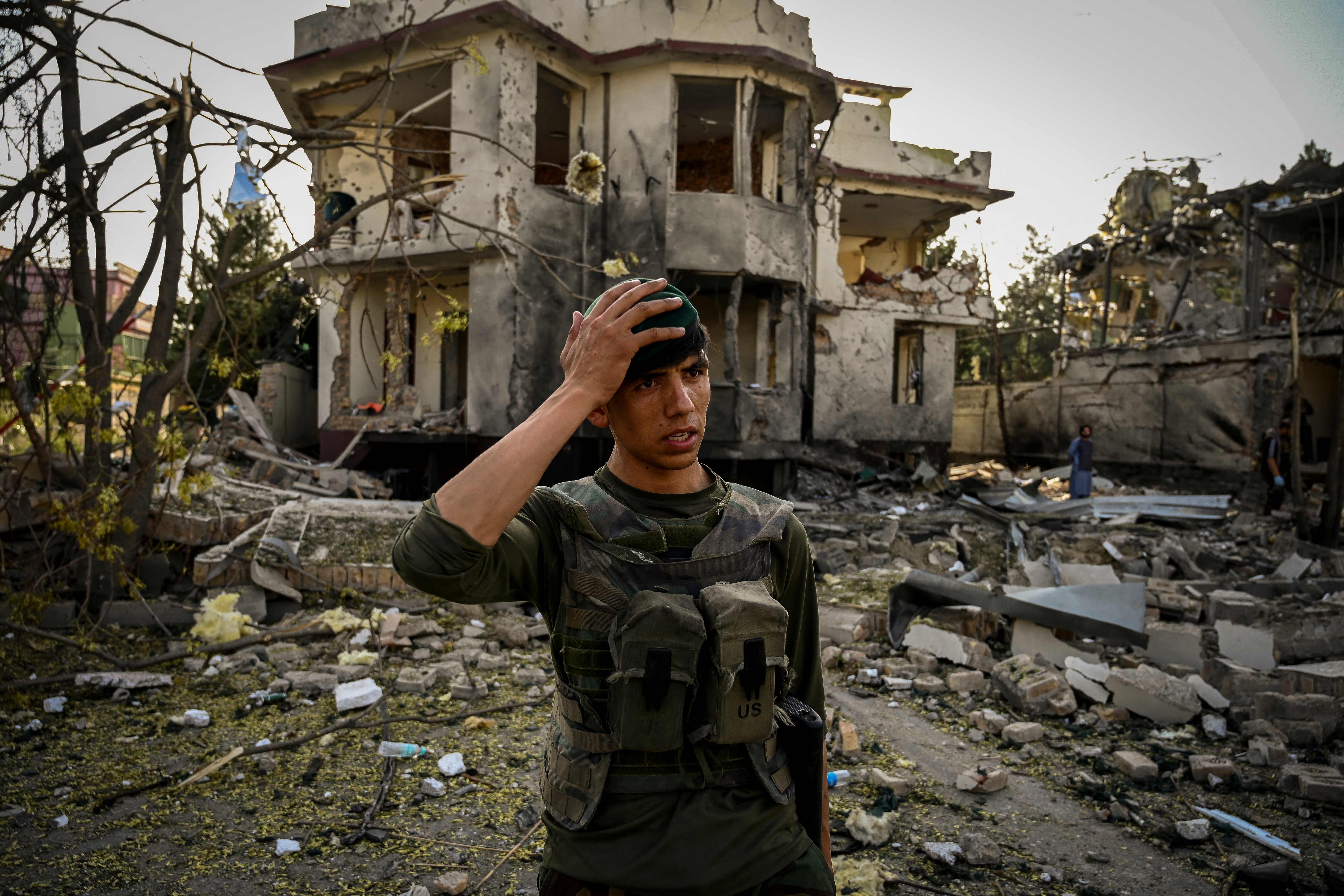Death toll in Taliban attack on Kabul rises to 13
Kabul took to rooftops to shout ‘Allahu Akbar’ in defiance of the Taliban after the attack

A car bombing in Kabul, followed by a prolonged firefight, is being seen as a tactical switch by the Taliban in their current offensive following the departure of US-led international forces from Afghanistan, bringing with it apprehension that more such attacks will come.
Thirteen people were killed and 20 injured in the explosion and the firefight which followed, according to Interior Ministry officials. Five of the dead were the attackers – the suicide bomber and four gunmen. The assault took place in the Sherpur district, in the Afghan capital’s heavily fortified ‘green zone’.
Just hours before the blast, the administrative head of a district in Wardak province was gunned down in Kabul, the latest in a series of assassinations. The bombing and the killing has raised questions about the ‘ring of steel’ which is supposed to protect the Afghan capital. Security officials privately acknowledge that insurgent ‘sleeper cells’ are present in the city.
After seizing swathes of the countryside the Islamist group has been attempting to take control of cities in the south and west of the country. It has, however, largely avoided using car and suicide bombing in large urban areas, apart from those aimed at sectarian targets like the Shia Hazara community.
The reason for this, it is believed, was to attempt to win ‘hearts and minds’ among the civilian population, and also to appear to abide by some parts of the Doha Agreement with the Americans, under which the Talibs had claimed to have restricted their attacks to Afghan security forces.
However, counter-attacks by government forces and the stepping up of air strikes by the US from outside Afghanistan, are believed to have led to large-scale losses among the insurgents and, according to security sources, threats to bring the war to Kabul.
The bombing and shooting was aimed at the home of public figures, the home of defence minister Bismillah Khan Mohammadi and also, it is believed, an MP, Azeem Baghlani. There had been reports that a meeting was due to take place in the evening to form an anti-Taliban resistance, and that may have been the target.
Mr Mohammadi said that although his family had been unharmed in attack, some of his bodyguards had been injured. “They may continue to do this again but we will continue to defend the nation,” he added.
Recently major attacks inside Kabul have been primarily sectarian, with the Shia Hazara community the main victims.
An attack on a girls school four months ago killed 85 people and injured 150 others, mostly students. Gunmen in police uniform had attacked the same area previously when they stormed a maternity hospital. Twenty-four people died, 16 of them women including expectant mothers and nurses. Two newborn babies were also among the dead.
The targeting of the Hazaras has continued elsewhere during the current Taliban offensive. More than 40 civilians were said to have been executed in Malistan, in the east of Ghazni province, last month.
Hours after Tuesday evening’s attack, residents of Kabul took to the streets and rooftops to shout “Allahu Akbar” in defiance of the Taliban. Similar scenes had taken place at the western city of Herat, where tribal militias mobilised by the veteran mujahideen commander Ismail Khan have driven back the Taliban from some areas.
Government forces have launched an attack in Helmand where the capital, Lashkar Gah, which was the centre of the British mission in Afghanistan, has been the focus of an insurgent drive.
Commando units were dropped to the south of the city, and had begun to push towards the centre, where fierce fighting is taking place near the governor’s residence and the provincial assembly building. Majid Akhund, deputy chairman of the Helmand provincial council, said the Taliban now control nine districts and have also taken over the television and radio stations.
General Sami Sadat, the commander of the government forces in Helmand, sent an audio message to residents saying: “Please evacuate your families from your homes and their surroundings. We will not leave the Taliban alive ... I know it’s hard ... we do it for your future. Forgive us if you get displaced for few days, please evacuate as soon as possible.”

The Taliban, however, have taken over many houses, using them as firing positions, and people say that they are in no position to get to safety through fierce clashes.
Mohieddin Hussein, a 36-year-old teacher, said: “When the Taliban went to my uncle’s house they said: ‘Show us the way to the roof and all stay in one room’. They started firing from the roof and then the army started firing back. Our fear is that the air force may bomb the house because of the firing from there.”
A 22-year-old-student, who did not want his identity made public, said: “We can see dead bodies lying on the road from our windows. It is not possible for our family to walk out in all this.
“Getting to somewhere else will mean having to go past Taliban positions. I am personally very worried about this, I am the type of person they do not like, so I don’t want to take a chance.”
Join our commenting forum
Join thought-provoking conversations, follow other Independent readers and see their replies
Comments
Bookmark popover
Removed from bookmarks